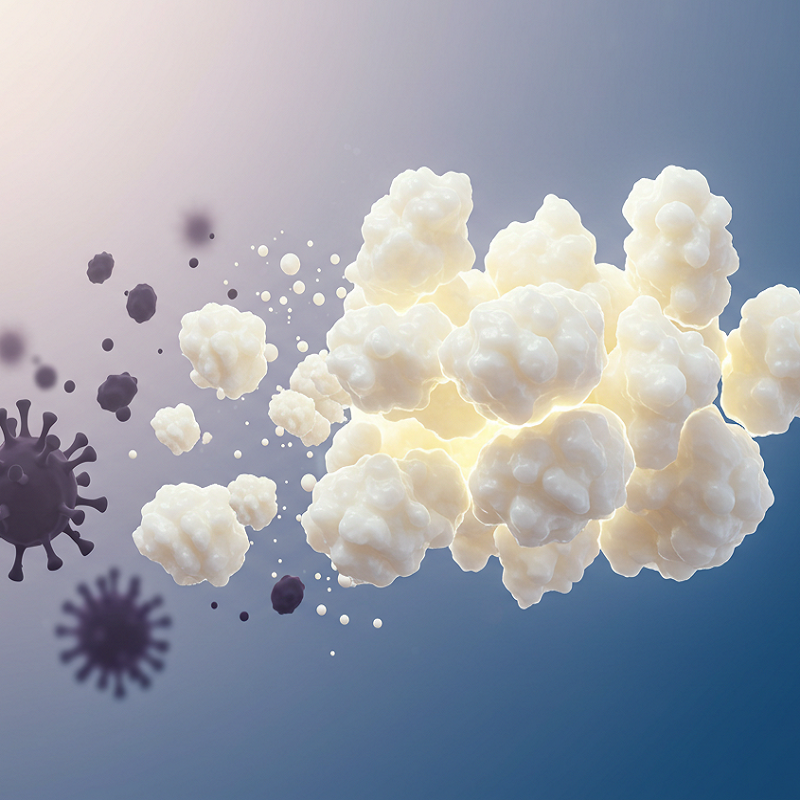
The risk of drinking raw milk (kefir) amid Bird Flu concerns
We have had several people contact us concerned about the bird flu virus (H5N1) and raw milk. There seem to be many articles and media outlets warning people about the dangers of drinking raw milk right now due to the possible viral contamination of raw milk. In modern-day society, raw milk tends to be the villain, so this kind of media frenzy is not exactly new to the 14 million (or more) Americans who drink raw milk every day. Is raw milk kefir safe? Let’s take an honest look at what's going on and the real risks involved.
First off, as of today, there are still no confirmed cases of humans contracting bird flu (H5N1) from consuming raw milk. The few cases of bird flu that are linked to cows come from direct contact with infected cows and not from the milk itself.
Can you get bird flu from drinking contaminated raw milk?
Researchers have fed mice raw milk from infected cows, and they did get sick (Guan et al., 2024). Animal models don’t always translate directly to humans, but with how severe bird flu can be, caution is warranted.
What happens to viruses in raw milk?
One thing is certain: viruses do not thrive and grow in raw milk. A virus will slowly degrade and become inactive given enough time. The question is, how long can it survive? There is a major Stanford study that shows that the influenza virus (a different subtype to bird flu) stayed infectious for up to 5 days in refrigerated raw milk (Zulli et al., 2024). So the influenza virus degrades fast in raw milk, but what about bird flu (H5N1)? Unfortunately, there is only one study, and it showed that it’s more stable and only degraded to a lesser degree after 5 weeks in the fridge (Guan et al., 2024).
Trust your raw milk source
Perhaps the most important element is to trust your raw milk source.
Closed Herds: Small-scale farms with closed herds (no introduction of outside animals) and strong biosecurity measures are less likely to harbor bird flu (H5N1).
Testing and Transparency: Some raw milk producers voluntarily test cows for H5N1 and other pathogens.
In regions without confirmed outbreaks, the likelihood of contamination is far lower.
Will making kefir prevent bird flu?
The process of fermentation, or making kefir, is antiviral and will certainly degrade any virus further, including bird flu, but it’s hard to say if it’s enough for inactivation.
In one study on a retrovirus called HTLV-1, the process of making kefir was able to stop up to 98% of its proliferation while simultaneously decreasing transcriptional levels, which is really impressive (Bourrie et al., 2016).
There are no current studies on the effects of fermentation on the bird flu virus, so hopefully, it has similar effects.
Why is kefir so powerful in combating viruses and pathogens?
Lowers pH: Kefir’s acidity (pH ~4.5 or lower) destabilizes many pathogens. While H5N1 is an enveloped virus sensitive to acidic environments, research on its survival in fermented dairy is limited. However, studies on similar viruses (e.g., influenza A) suggest reduced viability in low-pH conditions.
Produces Antimicrobial Compounds: Kefir microbes generate lactic acid, acetic acid, bacteriocins, and exopolysaccharides, which inhibit bacteria like Salmonella and E. coli. These compounds create a hostile environment for pathogens (Rosa et al., 2017).
Microbial Competition: Kefir’s thriving ecosystem of beneficial microbes could outcompete or suppress pathogens, including mold and viruses.
Dilution: Kefir grains consume lactose during fermentation, potentially diluting viral particles in the liquid.
Immune Support: Kefir’s probiotics, nutrients and bio-active peptides may strengthen gut health and immunity, potentially helping the body resist infections.
Bottom Line
Even though no human has been infected by drinking raw milk or raw milk kefir at this time, there is still a risk. If you desire to drink raw milk, contact your raw milk seller and ask questions about their possible exposure and how they run their operations (such as whether they are a closed herd or test their cows). Also, stay aware of current outbreaks to understand your risk.
Raw milk, and especially raw milk kefir, is highly inhospitable to any virus. Viruses degrade slowly in raw milk, and the process of making kefir will also significantly degrade the virus. It’s quite possible that it will degrade to the point that it’s no longer infectious, but more research is needed. However, caution should still be warranted, as there is some evidence from one study that H5N1 might be more stable than other viruses and may survive longer than expected. Hopefully, there will be more research so we can better understand the exact risks involved. If new research or more information is uncovered, we will update this post.
References
1. Guan, L., Eisfeld, A. J., Pattinson, D., Gu, C., Biswas, A., Maemura, T., Trifkovic, S., Babujee, L., Presler, R., Dahn, R., Halfmann, P. J., Barnhardt, T., Neumann, G., Thompson, A., Swinford, A. K., Dimitrov, K. M., Poulsen, K., & Kawaoka, Y. (2024). Cow’s Milk Containing Avian Influenza A(H5N1) Virus — Heat Inactivation and Infectivity in Mice. New England Journal of Medicine, 391(1), 87–90. https://doi.org/10.1056/nejmc2405495
2. Zulli, A., Zhang, M., Jong, S., Blish, C., & Boehm, A. B. (2024). Infectivity and persistence of influenza a virus in raw milk. Environmental Science & Technology Letters. https://doi.org/10.1021/acs.estlett.4c00971
3. Bourrie, B. C. T., Willing, B. P., & Cotter, P. D. (2016). The microbiota and health promoting characteristics of the fermented beverage kefir. Frontiers in Microbiology, 7. https://doi.org/10.3389/fmicb.2016.00647
4. Rosa, D. D., Dias, M. M. S., Grześkowiak, Ł. M., Reis, S. A., Conceição, L. L., & Peluzio, M. D. C. G. (2017). Milk kefir: nutritional, microbiological and health benefits. Nutrition Research Reviews, 30(1), 82–96. https://doi.org/10.1017/s0954422416000275


Leave a comment